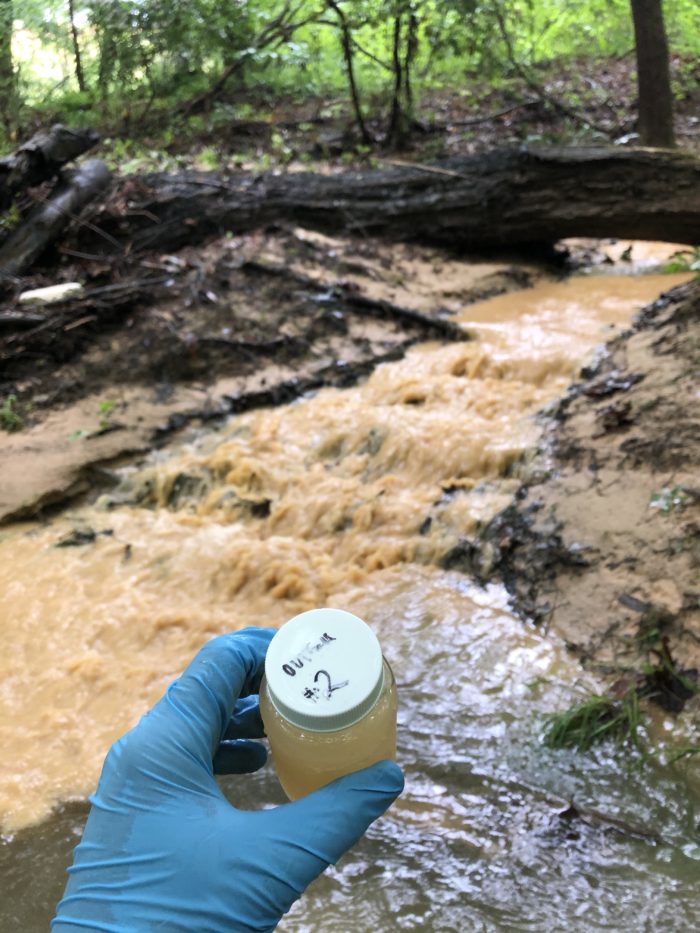Federal suit targets pollution from Newcastle Homes to protect downstream waterways
On behalf of Coosa Riverkeeper, SELC recently filed a federal lawsuit against a local builder for consistently violating the Clean Water Act in Shelby County, Alabama.
In total, our client has documented over 150 instances where Newcastle Homes violated its stormwater permit at its Melrose Landing construction site — a 78-lot subdivision adjacent to the Shelby County Dunnavant Valley Greenway.

“Newcastle is allowing piles of mud and silt to pollute our creek which has incredibly harmful implications for downstream water quality and habitat,” says Coosa Riverkeeper’s Justinn Overton. “Shelby County communities who want to be able to enjoy our rivers, creeks, and places like the Dunnavant Valley Greenway Trail should not have to bear the burden of Newcastle’s pattern of bad development practices.”
Coosa Riverkeeper has collected numerous samples in the North Fork of Yellowleaf Creek, a tributary to Lay Lake, and found that the developer discharged sediment 12-14 times over permit limits, which is illegal under the Clean Water Act.
From 2020 to 2022, Coosa Riverkeeper collected water quality samples on 25 different days and every time it documented both visible stormwater pollution, captured in pictures and videos, and excess sediment in lab samples taken from five unpermitted discharge points.
In June 2021, SELC notified Newcastle of the Riverkeeper’s intent to sue — giving the developer 60 days to comply with permit requirements. However, every sample that Coosa Riverkeeper has taken since then has confirmed violations at the site, despite assurances that the company was fixing the problems.
“Alabama’s rivers and streams are not a free dumping ground for developers who feel that they are above the law,” says Senior Attorney Sarah Stokes. “It is past time for Newcastle Homes to address these violations once and for all.”
Newcastle is the second most active homebuilder in Shelby and Jefferson counties with 220 active building permits in 2019. The company has the resources to follow practices that preserve the recreational and practical uses of surrounding waterways, yet Newcastle has repeatedly violated its construction stormwater permits for its projects across the state, including at the Dunnavant Valley Subdivision.
Developers have a responsibility to ensure their operations do not harm water quality for downstream communities that rely on these waters for fishing, swimming, navigation, and drinking water supplies.
Sarah Stokes, Senior Attorney
Under stormwater permit requirements, developers must use best management practices to prevent uncontrolled volumes of sediment from being washed away and to reduce the turbidity in downstream waterways.
“Sediment is one of the leading causes of water pollution in Alabama,” says Stokes. “Developers have a responsibility to ensure their operations do not harm water quality for downstream communities that rely on these waters for fishing, swimming, navigation, and drinking water supplies.”
